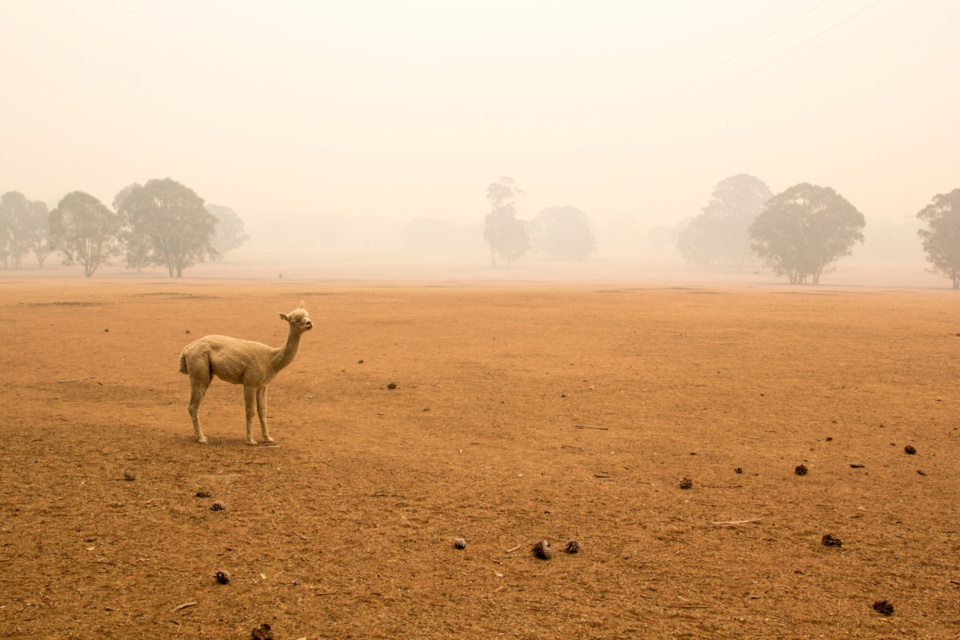
What not-for-profit leaders need to know in 2026
Posted on 12 Feb 2026
Our special NFP trends report distils the views of more than two dozen experts.
Posted on 01 Jun 2023
By Greg Thom, journalist, Our Community
The level of inequality in Australia has increased markedly over the past seven years, according to a ground-breaking new online interactive tool designed to democratise the measurement of social wellbeing.

Financially supported by Our Community and developed by independent public policy think tank Per Capita, the Australian Inequality Index measures inequality across a range of economic, social and demographic indicators.
The tool is designed to look beyond traditional measures that focus on economic growth such as GDP by instead homing in on how that growth is distributed.
The Index revealed the major driver of growing inequality is a significant growth in the value of assets held by the wealthiest Australians.
So much so, the wealth divide in Australia is growing at a rate “not seen for generations.”
Other key findings include:
Per Capita Executive Director Emma Dawson said by democratising access to data and information, the Index empowers people and communities to understand the complex causes and effects of inequality.
Community and not-for-profit organisations in particular can now access the type of data used to informs policy making but is too often inaccessible to those without significant resources.
“The Australian Inequality Index reveals a deeply concerning trend: wealth inequality in Australia has reached staggering levels,” said Ms Dawson.
“The concentration of wealth in the hands of a few poses significant challenges to social cohesion and trust in democratic institutions."
The Index analyses inequality levels according to seven sub-indexes: Wealth, Income, Gender, Ethnicity, Disability, Generation and First Nations.
Ms Dawson said the index makes clear we can’t ignore the stark reality of growing inequality in Australia.
“It erodes social cohesion, exacerbates economic disparities and limits the potential of our nation,” said Ms Dawson.
“It is high time we prioritize policies that promote inclusive growth and bridge the wealth divide."
The good news is, growing economic inequality is not inevitable.
Rather, it is a consequence of policy choices.
“The Australian Inequality Index compels us to re-evaluate our priorities and commit to comprehensive reforms that ensure wealth is shared equitably, leaving no one behind," said Ms Dawson.
Unveiled at this week’s Communities in Control Conference in Melbourne, Ms Dawson said the development of the Australian Inequality Index would not have been possible without funding from Our Community - an organisation that champions real social and economic change.
“We thank them for their generous support.”
Our Community Managing Director Denis Moriarty said he was proud to provide the initial funding to develop such a valuable tool for the sector.
“The money could not have gone to a better organisation – Per Capita is just brilliant at working on progressive analyses,” he said.
“This body of work will provide the proof that state and federal governments and philanthropy must provide bigger investments across all sectors to break the growing inequality problems Australia is facing.”
“It erodes social cohesion, exacerbates economic disparities and limits the potential of our nation,” said Ms Dawson.
“It is high time we prioritize policies that promote inclusive growth and bridge the wealth divide."
The good news is, growing economic inequality is not inevitable.
Rather, it is a consequence of policy choices.
“The Australian Inequality Index compels us to re-evaluate our priorities and commit to comprehensive reforms that ensure wealth is shared equitably, leaving no one behind," said Ms Dawson.
Unveiled at this week’s Communities in Control Conference in Melbourne, Ms Dawson said the development of the Australian Inequality Index would not have been possible without funding from Our Community - an organisation that champions real social and economic change.
“We thank them for their generous support.”
Our Community Managing Director Denis Moriarty said he was proud to provide the initial funding to develop such a valuable tool for the sector.
“The money could not have gone to a better organisation – Per Capita is just brilliant at working on progressive analyses,” he said.
“This body of work will provide the proof that state and federal governments and philanthropy must provide bigger investments across all sectors to break the growing inequality problems Australia is facing.”
Communities in Control | Understanding Inequality: Emma Dawson speaking at the 2022 conference.

Posted on 12 Feb 2026
Our special NFP trends report distils the views of more than two dozen experts.

Posted on 11 Feb 2026
Australia’s not-for-profits need strategic investment by the federal government to support the…

Posted on 04 Feb 2026
In this time of escalating climate impact, the head of Australian Ethical Foundation, Kate…

Posted on 27 Jan 2026
With a laser focus and the right tools, this volunteer-led NFP is unlocking life-changing…

Posted on 14 Jan 2026
As the holiday chatter fades and the new year begins, it’s the ideal time for organisations to plan…

Posted on 13 Jan 2026
This page provides information about financial assistance available to not-for-profit organisations…

Posted on 10 Dec 2025
The Australia Institute has called on the federal government to force Australian businesses to be…

Posted on 11 Nov 2025
Australian charities are curious about how to use artificial intelligence and are increasingly…

Posted on 11 Nov 2025
Thousands of not-for-profit organisations are being held back by an outdated, rigid and complicated…

Posted on 11 Nov 2025
New grants worth $36 million aim to help farmers and farming communities prepare for drought by…

Posted on 05 Nov 2025
The number of registered charities in Australia ballooned in the last financial year by 4621 new…

Posted on 01 Oct 2025
Persistence, planning and strategic focus continue to be the keys to grant success, according to…